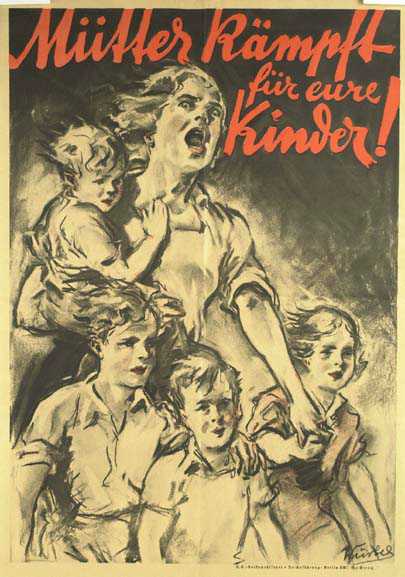What kind of mother would deny the safety of her children? Of course, no loving mother would neglect to do so, but this Nazi poster almost forces you to take action and do something. It intentionally exploits on the fact that a parent has this natural dedication, or rather this instinct, to ensure the survival of their offspring.
Oddly enough, there is no immediate threat to the children; Nazi propagandists are simply manipulating this 'drive-to-protect' for their own ulterior motives. Appealing to such a strong emotion, it's no wonder why Hitler was able to slay millions of Jews, or "enemies."
Propaganda has this horribly negative connotative meaning, but in theory, it could be used for the betterment of society and its people. However, the way in which it is interpreted is entirely subjective. Complimentary to that, the inferences from opposing parties are nearly guaranteed to be opposites.
Take for instance this poster from World War II: being an American, you are probably somewhat disgusted at the underlying purpose of this propaganda. Yet, if you were a German civilian at the time, you might have felt a sense of courage and nationalism. With the former, you retain this widely-accepted, negative meaning of the word propaganda, and with the latter, you experience this new-found, positive propaganda, that drives you to preserve and protect your own kind. So, am I saying that the Germany's actions were justified in the Holocaust and in World War II? No, I'm simply stating that the emotions invoked from the use of propaganda can cause for one to feel like what he/she is doing is right, but what is right and what feels right are two different things.
Bytwerk, Randall. "German Propaganda Archive." Calvin College. Mar. 2001. Web. 05 Oct. 2009.

No comments:
Post a Comment